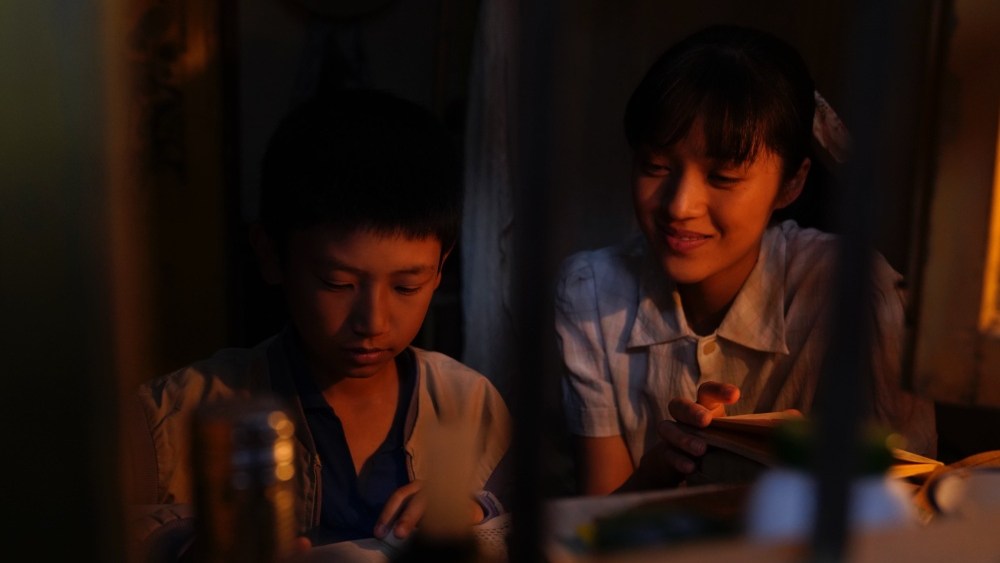There’s a patient, plainspoken poetry, neither overly earthy nor flowery, to “Living the Land,” a rolling rural drama that may be a work of pure fiction — but often feels wholly, organically observed, as if its storytelling were dictated by the rigors and challenges of seasons and soil. An unassuming but impressive second feature from Chinese writer-director Huo Meng, the film deftly captures the pace of life in a modest farming village on the brink of industrialization in 1991: a steady meander, at once languid and arduous, that is felt differently across four generations of the hard-up Li family. As the young restlessly await a future that arrives in frustrating fits and starts, the old slow down further, accepting that they’ve seen enough change for one lifetime.
Though it’s gently paced and narratively diffuse, “Living the Land” is never dull, thanks to a wealth of incident and the complexity of relationships in Huo’s extended family portrait — which shares its multi-generational breadth and vivid rooting in China’s central Henan province with the director’s 2018 debut “Crossing the Border — Zhaoguan.” That film was selected by leading auteur Jia Zhangke for a special showcase at the 2020 Berlin Film Festival; this more expansive and ambitious follow-up has been duly promoted to the same festival’s main competition this year, and promises to be more widely distributed than its predecessor.
Like “Zhaoguan,” “Living the Land” opens with a young child separated from his parents, made to live with relatives in the countryside. In this case, bright, sensitive 10-year-old Chuang (Wang Shang) feels unwanted in multiple households. As the third-born child in his family, he is the one left behind when his parents decide to leave their village and seek work in the southern city of Shenzhen, taking his older siblings with them. He is left in the care of his uncle Tuanjie (Wan Zhong), among other elder offshoots of his family tree, though he’s never made to feel like he entirely belongs. He has a different last name from them, for starters, and his hardened guardians are quick to remind him of the chasm that implies: “This is not your place,” his uncle mutters, when the boy innocently asks where he might someday be buried.
Burial never gets to be far from Chuang’s mind. He witnesses a number of them, with all the accompanying rituals and lamentations, in the course of a year in the village, to the point that mortal anxiety seeps into his dreams: The land that sustains this crop-farming community can also be a cruel, wearying mistress. Though Chuang and his cousin Laidan (Jiang Yi’en) are friendly and of an age, the former primarily finds succour and comfort in the women of the family — in particular his nonagenarian great-grandmother (Zhang Yanrong), who professes her dismay at the callousness of the adults succeeding her, and Xiuying (an incandescent Zhang Chuwen), a 21-year-old aunt by marriage. Clear-eyed and wild-hearted, she’s under pressure from the clan to agree to an arranged marriage, but harbors romantic dreams of her own.
As circumstances conspire to challenge Xiuying’s resistance, “Living the Land” paints a tough, poignant picture of life for women, especially in a social climate as unforgiving as the elements, where even their bodies are not seen as their own. As demonstrated in one viscerally discomfiting scene, regular pregnancy exams are state-mandated for all women of child-bearing age, exposing their family planning and even their sexual activity to the patriarchy. The rowdy pomp and ceremony that accompanies a wedding march, meanwhile, is pointedly shown as not all that different from the film’s funeral processions — each soundtracked by the juddering snap and pop of cheap firecrackers.
It’s all part and parcel of everyday life in China in this longstanding agricultural economy, where personal fulfillment is viewed as a secondary priority to communal wellbeing, though some demographics still wind up less fulfilled than others. A decade away from the 21st century, the village is just beginning to feel the ripples of economic and technological advancements that will soon render their hand-gnarling farming practices obsolete — though at this stage, no one’s life is getting any easier, or longer.
There’s certainly a spirit of lively, spontaneous community in the film’s ensemble of screen newcomers, all cast from the region and fluent in its distinctive Henan dialect, who collectively contribute a vital air of careworn, lived-in human texture to proceedings. They’re treated with due care and compassionate scrutiny by Huo and DP Guo Daming — whose camera finds great compositional depth and intricacy in cramped, dimly lit interiors, illuminating faces like sparks of humanity in the drear. Outside, leisurely tracking shots graze on the horizontal sprawl of wheat fields at various stages of cultivation and harvest, and billowing skies in shades of powdery springtime blue and misty, wintry chalk. Panoramic magic-hour spectacle, however, is never the objective: Looking at the land is a luxury rarely afforded to those who live it.

